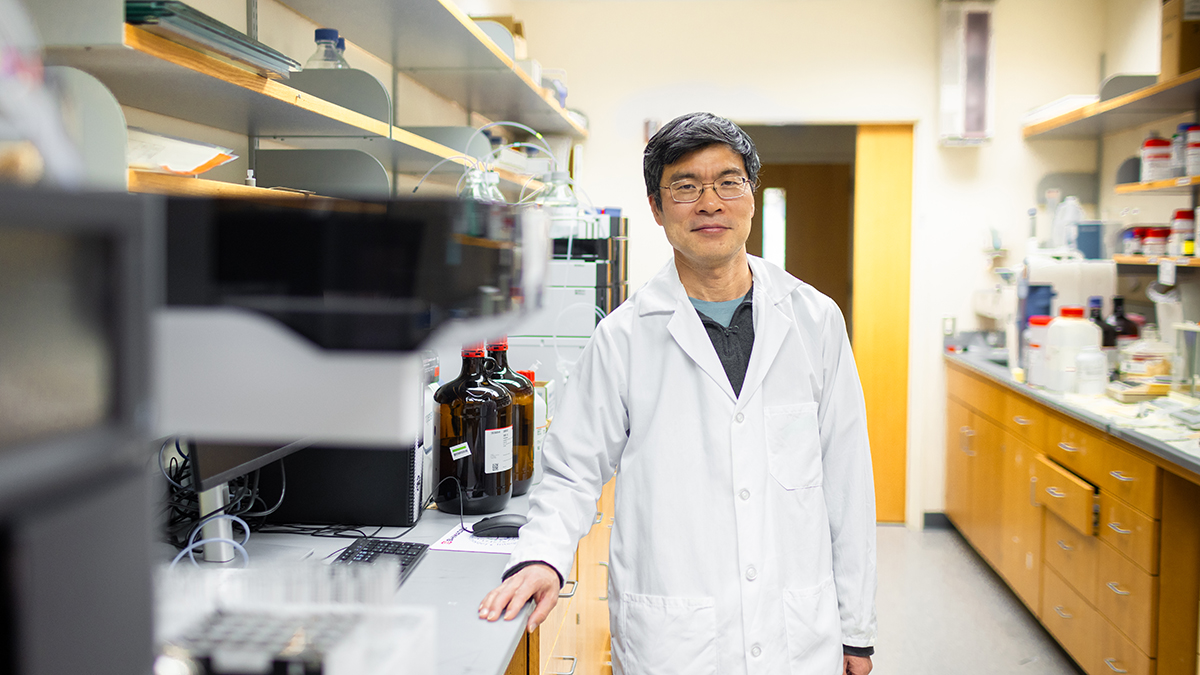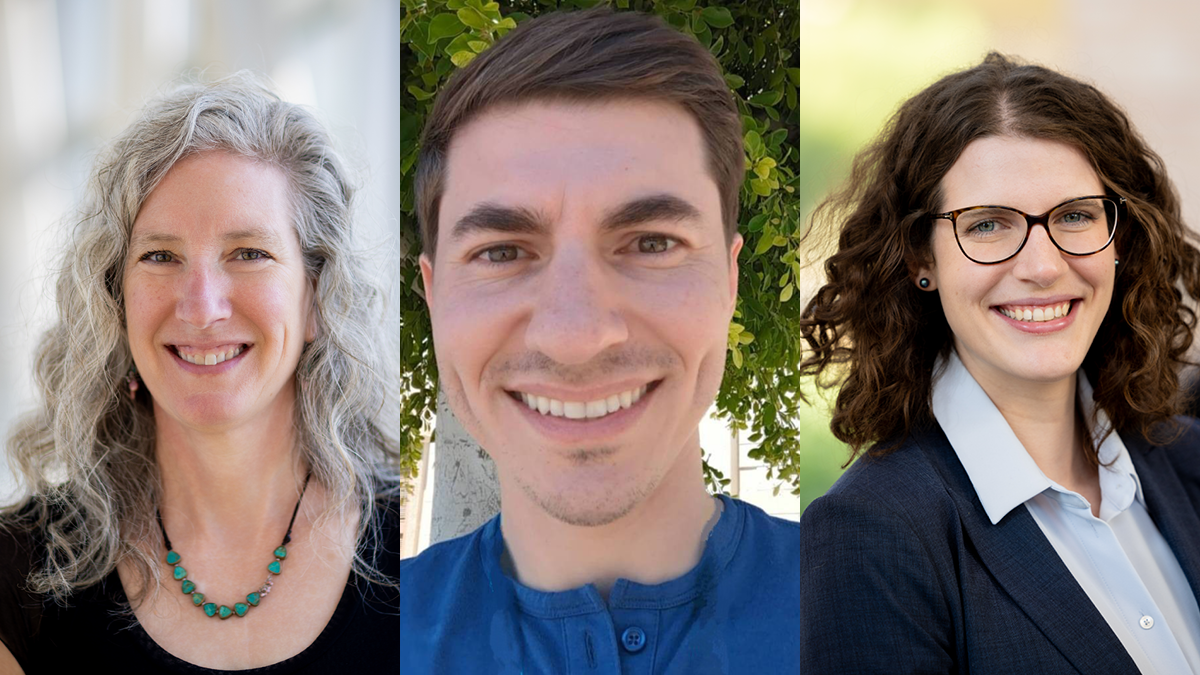
Lisa Holle, Nick Kalogriopoulos, and Paula Voorheis expand the School’s expertise in oncology, therapeutics, and health system innovation
By Darcy Lewis
From reimagining cancer care and exploring new therapeutic targets to reshaping how patients interact with the health system, new faculty joining the University of Wisconsin–Madison School of Pharmacy are bringing expertise to tackle some of the most pressing challenges in healthcare.
“When we bring in new faculty members, it’s an opportunity to reflect on where we are now and where we want to be in the future — both as an institution and as a field,” says Steve Swanson, dean of the UW–Madison School of Pharmacy. “Each new hire adds critical expertise that helps lay the foundation for where we’re headed.”
The Division of Clinical Practice, Innovation, and Research is welcoming two new faculty members this fall:
- Lisa Holle (BS ’93, PharmD ’95) brings a breadth of experience in clinical care, research, and education related to cancer treatment.
- Paula Voorheis specializes in digital health innovation, behavioral economics, and how human behavior affects medical decision making.
Later in the academic year, the Pharmaceutical Sciences Division is also welcoming Nicholas Kalogriopoulos, whose lab will focus on identifying drug targets and developing new therapies.
“Our new faculty members are taking on complex challenges and finding innovative ways forward, and all three will help drive the School’s research, teaching, and clinical missions,” says Swanson. “Everything we do contributes to the Wisconsin Idea of conducting science and research that will have real benefits to the citizens of Wisconsin and beyond.”
Lisa Holle: Focus on oncology care
Although Holle will be newly joining the faculty as an associate professor, she’s no stranger to the School: She earned her Bachelor of Science in Pharmacy from the School of Pharmacy in 1993, followed by her PharmD in 1995.
“It is wonderful to welcome Lisa back to her alma mater,” says Professor Beth Martin (BS ’90, MS ’03, PhD ’06), chair of the Division of Clinical Practice, Innovation, and Research. “She brings an incredible national reputation as an oncology pharmacist and as an educator. There are many clinicians excited to collaborate with her to enhance patient care initiatives.”
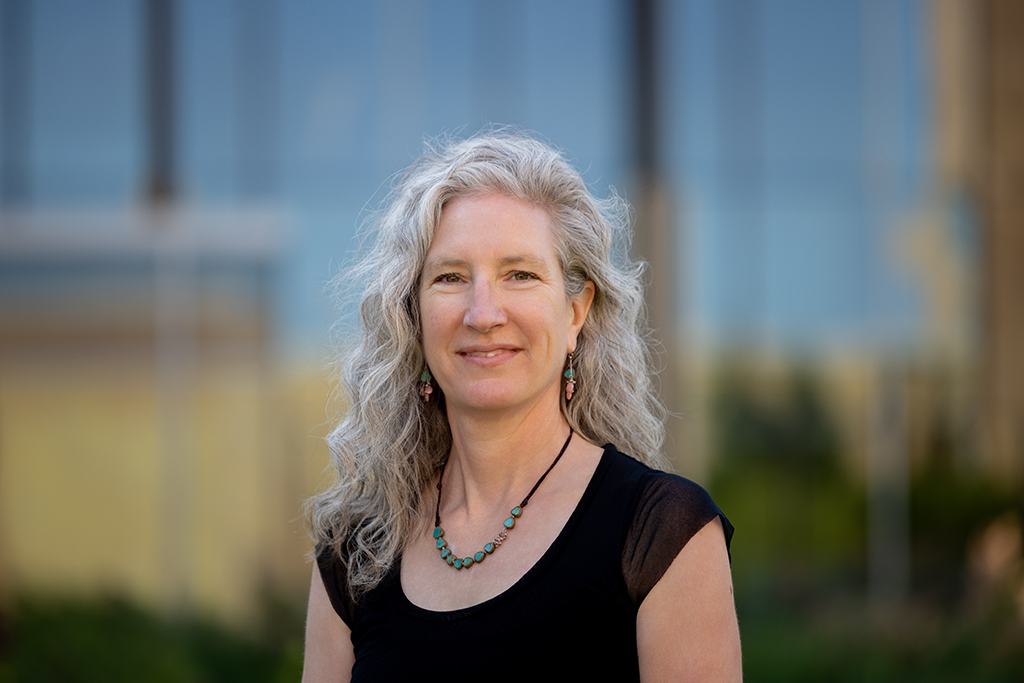
As a board-certified oncology pharmacist, Holle’s research interests include evaluating the role of the pharmacist in various oncology-focused practice settings. She is interested in increasing the autonomy of oncology pharmacists and leveraging their accessible expertise to improve cancer screenings and optimal care for patients with cancer.
“I’m interested in what other roles pharmacists can have in caring for patients with or at risk for cancer. For example, I’ve conducted a study with pharmacists in a community setting offering colorectal cancer risk counseling and an at-home screening test,” she says. “This is an example of how a pharmacist in the community setting, as a trusted, familiar healthcare professional, can provide more accessible and convenient cancer screenings and educate individuals on risk reduction strategies.”
Holle, who grew up near Chippewa Falls, Wisconsin, also studies shared decision-making in the oncology setting.
“We know that receiving a cancer diagnosis can be overwhelming, especially when the patient must choose from multiple treatments,” she says. “We want to understand how patients process what we say about various types of risk and use that in their decision making.”
Most recently a clinical oncology pharmacist in a gastrointestinal/genitourinary (GI/GU) oncology clinic at the UConn Health Carole and Ray Neag Comprehensive Cancer Center, Holle is excited to build collaborative relationships at UW Health, the University of Wisconsin Carbone Cancer Center, and across the UW–Madison campus.
“Oncology pharmacy is a rapidly growing area of innovation and opportunity for our students, and her future collaborations with the Carbone Cancer Center will have a high impact for patients and the state.”
–Warren Rose
“UW Health has a great oncology pharmacy program, with pharmacists providing innovative patient care, and the Carbone Cancer Center has a long legacy of cancer research,” she says. “I look forward to working with these clinicians in providing patient care, conducting research and training the next generation of oncology professionals.”
Associate Professor Warren Rose, chair of Holle’s hiring committee, notes that her nationally recognized expertise and accomplishments in oncology present an exciting opportunity for the School’s students.
“Oncology pharmacy is a rapidly growing area of innovation and opportunity for our students, and her future collaborations with the Carbone Cancer Center will have a high impact for patients and the state,” says Rose. “We are thrilled for her to return to Wisconsin.”
Paula Voorheis: Focus on health-related behavior change
Having just completed a postdoctoral fellowship at the University of Toronto, Voorheis is joining the Division of Clinical Practice, Innovation, and Research as an assistant professor, bringing a research focus on improving the design and implementation of equitable digitally enabled health interventions using insights from behavioral science, implementation science, and design science.
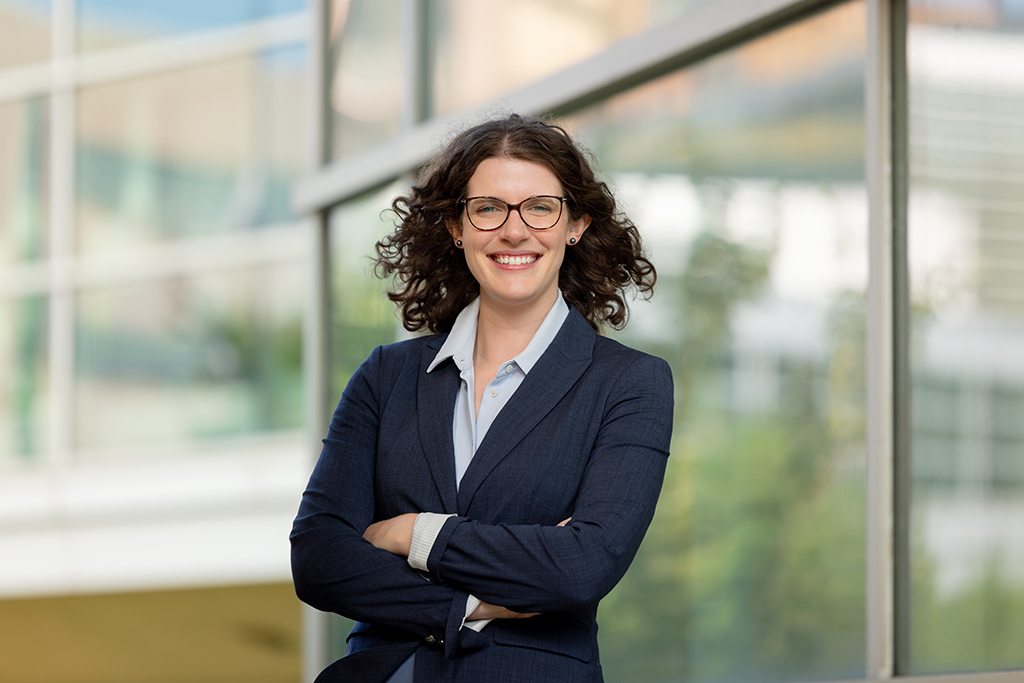
“We at the School of Pharmacy are very interested in the economics of healthcare, especially how we can help support making a transition to healthcare that provides outstanding medical treatment in a manner that’s affordable and effective,” Swanson says.
Hailing from Ontario, Canada, Voorheis attended Cornell for her bachelor’s degree in biology and society, then moved on to the University of London in the UK for her master’s in health economics, followed by the University of Toronto in Canada for her PhD in health services research. Most recently, Voorheis completed a postdoc at the Science of Care Institute in the Sinai Health System in Toronto.
As a postdoc, Voorheis worked with the province of New Brunswick for their implementation of a province-wide personal health record system that connects patients with their medical records.
“A few Canadian provinces have implemented province-wide personal health record systems, but New Brunswick has a unique, QR code-based patient summary that you can share with any provider anywhere,” she says. “I’ve interviewed different clinicians, administrators, and patients to understand how this innovation has changed their workflows or ways of navigating the healthcare system. We tried to embed ongoing developmental research throughout the whole implementation cycle to make sure all decisions were evidence-based.”
“I want to understand how people’s experiences with the health care system vary based on whether they are in a rural or urban location and then explore how we can make sure those experiences are equitable.”
—Paula Voorheis
Voorheis is joining the School of Pharmacy as part of UW–Madison’s campus-wide Research, Innovation and Scholarly Excellence (RISE) Initiative, a multifaceted focus on faculty hiring, research infrastructure, interdisciplinary collaboration, and student opportunity. Specifically, Voorheis’s hire is part of RISE-THRIVE, whose goal is to recruit outstanding scholars whose work will Transform Healthspan through Research, InnoVation, and Education.
To that end, Voorheis’ work will involve collaborating with pharmacists and other stakeholders to understand how digital health innovations impact workflows and patient experiences.
“I know I have a lot to learn about the American healthcare system and Wisconsin as well,” she says. “I want to understand how people’s experiences with the health care system vary based on whether they are in a rural or urban location and then explore how we can make sure those experiences are equitable.”
Nicholas Kalogriopoulos: Focus on drug discovery
Whether it’s controlling how cancer cells grow or fine-tuning the immune system’s defenses, Kalogriopoulos studies one of biology’s most powerful switches: G protein-coupled receptors, or GPCRs. Found in virtually every cell in the human body, these molecular gatekeepers influence how cells respond to signals — and because of their prevalence, they’re the target of roughly a third of all approved drugs. By precisely engineering GPCRs, Kalogriopoulos, who is coming to the School as an assistant professor in the Pharmaceutical Sciences Division following a postdoc at Stanford, is opening the door to therapies that could treat diseases in entirely new ways.
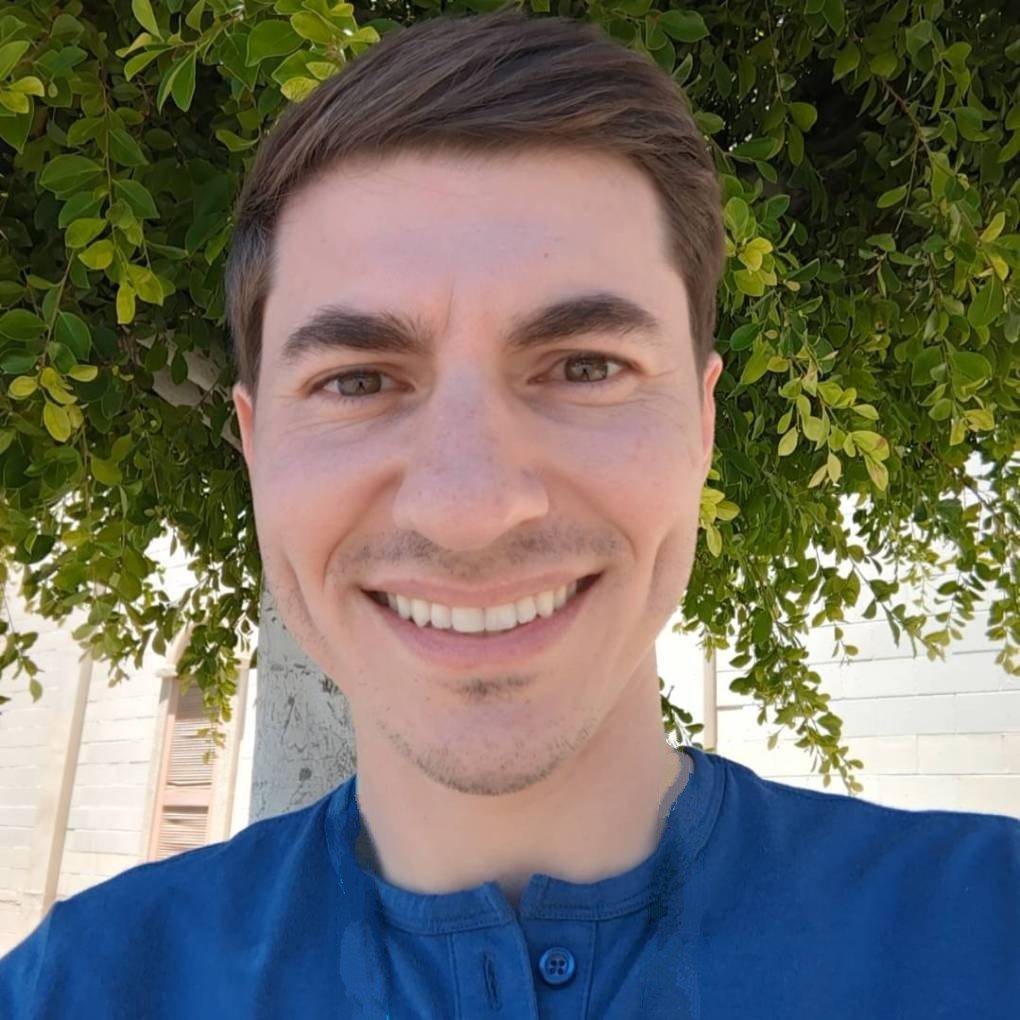
“GPCRs are in every cell and serve many functions, which is why most diseases you can think of probably have a drug that’s targeting a GPCR,” Kalogriopoulos says. “What I’ve been doing for my postdoc is to manipulate the receptors themselves so we can change how they respond. There aren’t many people studying GPCRs using protein engineering techniques in the oncology or immunology space.”
For Professor Weiping Tang, Janis Apinis Professor and Vilas Distinguished Achievement Professor who led the committee for Kalogriopoulos’ hire, the strengths that Kalogriopoulos brings dovetail well with existing expertise at the School while pushing into new areas of inquiry.
“He brings a broad and impactful range of expertise spanning synthetic biology, protein engineering, GPCR biology, and therapeutic innovation — areas that strongly align with the Pharmaceutical Sciences Division’s commitment to advancing translational research in drug discovery and development,” he says. “His pioneering work in engineering programmable synthetic GPCRs for precise control of cell behavior, combined with his deep background in cancer biology and technology development, uniquely positions him to expand our capabilities in creating novel therapeutics.”
Having grown up in Milwaukee, Kalogriopoulos earned his bachelor’s degree in genetics and molecular biology at UW–Madison, before getting his PhD in biomedical sciences from the University of California San Diego.
Like Voorheis, Kalogriopoulos is also joining the School of Pharmacy as part of UW–Madison’s RISE-THRIVE initiative.
“Dr. Kalogriopoulos’s arrival will significantly strengthen our efforts to develop next-generation therapeutic strategies and enhance our ability to support high-impact, mechanism-based drug discovery across the UW–Madison research community.”
–Weiping Tang
“His proven record of interdisciplinary collaboration and his commitment to training and mentoring students reflect the core values of the THRIVE initiative,” Tang says. “Dr. Kalogriopoulos’s arrival will significantly strengthen our efforts to develop next-generation therapeutic strategies and enhance our ability to support high-impact, mechanism-based drug discovery across the UW–Madison research community.”
Kalogriopoulos is excited to combine his many research interests at his alma mater, where he will gain ready access to renowned oncologists and other clinicians.
“Not being an oncologist myself, I’m eager to collaborate with immuno-oncology experts at UW–Madison,” Kalogriopoulos says. “With GPCRs everywhere in the body, the possibilities are almost endless.”
